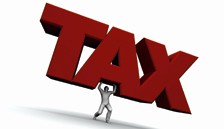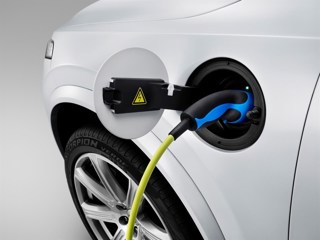Car retailers driving towards an omnichannel sales journey could be subject to a double-whammy of “complex” new taxation, it has been suggested.
Rowena Clifton, VAT partner at RSM UK, has told AM that the drive to ensure that car retailers operating physical sites are not penalised as increasing volumes of sales are handled online could result in a level of added complexity that negates its benefit.
“The sheer breadth and diversity of the retail sector means that the impact could be as unique as the individual retailers that will operate under this new rebalanced tax regime” she said.
“What’s certain is it will be a complex task to determine exactly which transactions the tax will apply to, so the Treasury will have to think carefully about whether an online sales tax is worthwhile considering the revenue that could be raised.”
 Clifton said that, at first glance, it appeared traditional car dealers would be the winners and that online retailers, who would face both a new tax and the burden of accounting for it in their systems, would be the losers.
Clifton said that, at first glance, it appeared traditional car dealers would be the winners and that online retailers, who would face both a new tax and the burden of accounting for it in their systems, would be the losers.
But she asked: “What happens if a dealership has adapted and now provide both in store and online offering, are they at risk of being taxed twice?”
The Treasury has launched a consultation – open until May 20 – which aims to test the arguments for and against a new online sales tax.
It assures stakeholders that no firm decision has yet been made on whether to proceed with the new tax.
Clifton pointed out three key questions put to dealers and the wider retail sector:
- How to distinguish between online and offline sales when imposing the new tax. The Treasury notes several areas where this may be difficult, for example online ‘click and collect’ sales, with the vehicle then collected from the dealership, or remote sales made offline, such as by phone.
- Whether an online sales tax should apply to sales of goods and services, or to goods only. If it only applies to goods, the Treasury highlights potential areas of difficulty in distinguishing between goods and services, for example whether online orders of takeaway food (treated as a catering service rather than a supply of goods) should be subject to the tax. Alternatively, were the tax to apply to both goods and services, this would raise the question of how far it should extend into retail services, for example to online estate agents or gambling websites which may be in competition with high street providers, or even to real world services (such as travel) that can be booked online.
- How an online sales tax should be designed, including whether it should be payable by the dealer or the customer, and whether the tax should be based on a percentage of the revenues generated from online sales or as a flat fee.
Although the rate of the online sales tax has yet to be decided, it is likely to be determined by the extent to which the government wishes to reduce the business rates burden on bricks and mortar dealerships.
However, Clifton said that possible models set out in the consultation document suggest that the Treasury has a rate between 1% and 5% in mind.
Ahead of tomorrow’s (March 23) Spring Statement by Chancellor o fthe Exchequer Rishi Sunak, Government will be looking for ways to ease the burden of inflation on motorists be reducing fuel duty, something it needs to address in the long-term as electric vehicles (EV) grow in market share.
That will leave a funding gap that needs to be filled, possibly through the introduction of roads charging or a new EV tax.
The Treasury’s consultation paper said that internal estimates suggest that a revenue-based online sales tax with a £2m allowance, levied at a rate of 1% on online sales of goods from business-to-customer and excluding services, could raise approximately £1bn per annum, depending on the scope of the final design.
Visit the Treasury's Online Sales Tax consultation page here.


















Login to comment
Comments
No comments have been made yet.